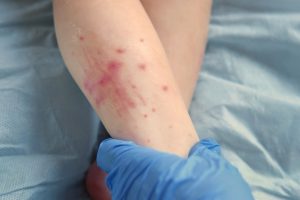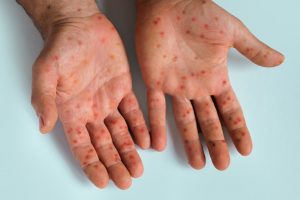The influenza season in South Africa occurs in the winter months and is expected to start in the coming weeks. On average the season begins in the first week of June. However, in past years; the season has started as early as the last week of April and as late as the first week of July.
A severe influenza season was experienced in the United States of America and Europe in the winter of 2017-2018. A severe season elsewhere in the world does not mean that South Africa will necessarily experience a severe season in 2018. The severity of a season is due to a combination of factors including the circulating influenza strains, previous immunity in the population and spectrum of underlying illnesses and age distribution of the population. The NICD monitors the progression and severity of the influenza season through its surveillance sites throughout the country to provide real time information on season progression.
Annual influenza epidemics result in an estimated three to five million cases of severe illness, and about 290 000-650 000 deaths globally. In South Africa, influenza (commonly known as flu) kills between 6000-11,000 people every year. About half of these deaths are in the elderly, and about 30% in HIV-infected people. The highest rates of hospitalization are in the elderly (65 years and older), HIV-infected people and children less than 5 years old. Pregnant women are also at increased risk of hospitalization and death from flu infections. People with chronic illnesses like diabetes, lung disease, tuberculosis and heart disease are also at increased risk of being hospitalized from the flu. During the flu season in South Africa about 8-10% of patients hospitalized for pneumonia and 25% of patients with flu-like illness (fever and cough) will test positive for influenza.
Vaccination is the most effective strategy to prevent influenza. Getting the flu vaccine can reduce flu illnesses, visits to the clinics or to doctors rooms, missed work and school due to flu, as well as prevent flu-related hospitalizations.
Vaccinating people with higher risk of severe flu directly protects them from flu infections. Vaccinating pregnant women has been shown to provide protection to both mother and baby during the flu season. HIV-infected adults without severely weakened immune systems also respond well to the vaccine. Vaccination is also recommended for individuals aged >=65 years and individuals with chronic illnesses like diabetes, lung disease, tuberculosis and heart disease.
Influenza vaccine for the 2018 season is currently available at public health facilities and at pharmacies. Since it takes about two weeks after vaccination for protective antibodies to develop, it is recommended that people get vaccinated as soon as possible to ensure that they are protected before influenza season starts. The best time to get the flu vaccine is before the season starts (March-June) but getting it later will protect individuals during the rest of the season. Because influenza viruses are constantly changing and immunity from vaccine lasts for about a year, it is necessary to get vaccinated each year before the influenza season.
The influenza vaccine that is licensed for use in South Africa covers three of the common influenza strains (influenza A(H3N2), influenza B and influenza A(H1N1)pdm 09). Based on the information on the influenza strains that were circulating during the 2017 Southern Hemisphere influenza season, the 2018 vaccine for the Southern Hemisphere has been changed (changes in influenza B and influenza A(H3N2) component of the vaccine). This means that the vaccine for the 2018 in South Africa will be different from the one which was used in the Northern Hemisphere for 2017/2018 season and the Southern Hemisphere 2017 influenza season.
It is also essential to practice good hygiene by properly and frequently washing hands and protecting coughs and sneezes (coughing or sneezing into a tissue or an elbow) to help prevent the spread of seasonal influenza. People who have flu-like symptoms should stay at home to avoid infecting others.
Detailed recommendations on target groups, dosages and contraindications for the 2018 can be accessed at https://www.nicd.ac.za/wp-content/uploads/2017/03/Influenza-guidelines-final_24_05_2017.pdf




